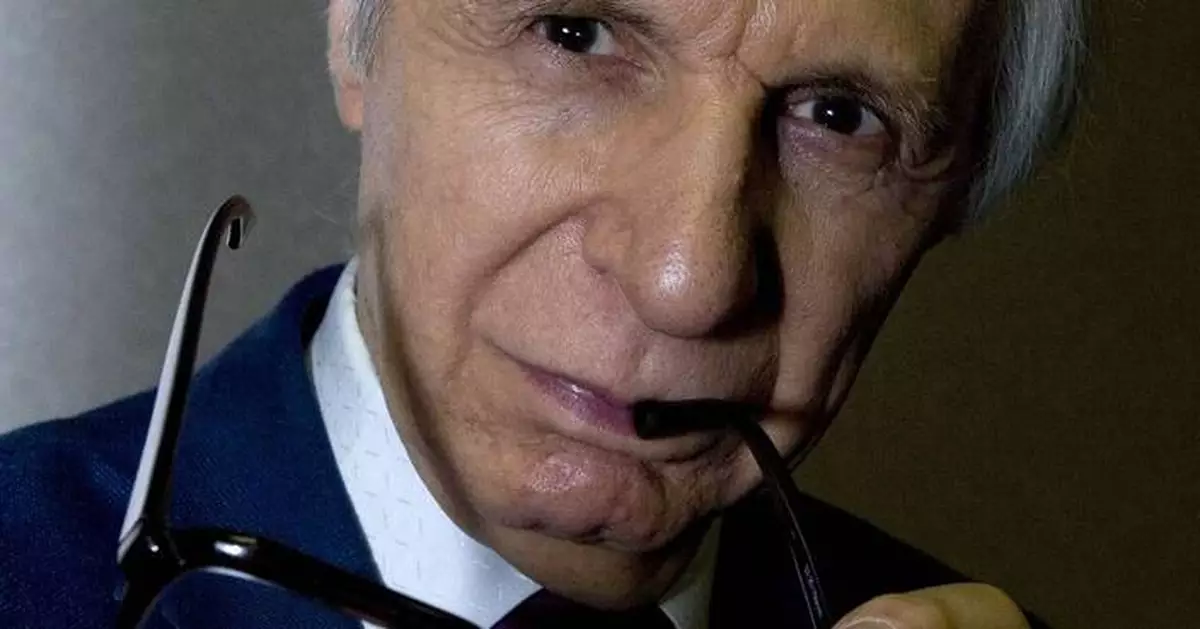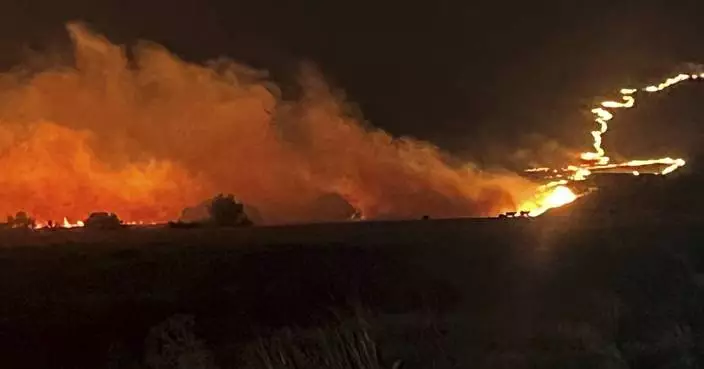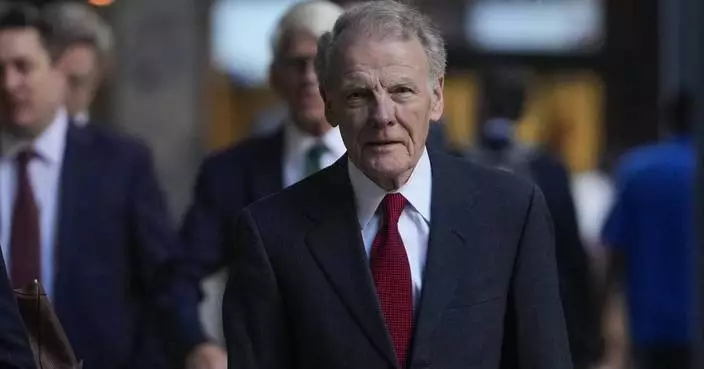NEW YORK (AP) — George Joseph Kresge Jr., who was known to generations of TV watchers as the mesmerizing entertainer and mentalist The Amazing Kreskin, has died at age 89.
Kreskin's friend and former road manager, Ryan Galway, told news outlets that he died Tuesday at his home in Caldwell, New Jersey, where he spent much of his life. Galway did not provide additional details.
Inspired by the crime-fighting comic book character Mandrake the Magician, Kreskin launched his television career in the 1960s and remained popular for decades, making guest appearances on talk shows hosted by everyone from Merv Griffin to Johnny Carson to Jimmy Fallon.
Fans would welcome, if not entirely figure out, his favorite mind tricks — whether correctly guessing a playing card chosen at random, or, most famously, divining where his paycheck had been planted among the audience. He also hosted his own show in the 1970s, gave live performances and wrote numerous books, including “Secrets of the Amazing Kreskin” and “Mental Power Is Real.”
Although he was a talk show regular, one host wasn't amused by a Kreskin stunt. In 2002, he claimed that a UFO would appear over Las Vegas on the night of June 2, and added that he would donate $50,000 to charity if he was wrong. Hundreds of people gathered in the desert, in vain. Kreskin acknowledged to radio personality Art Bell that his prediction was a hoax, a way of proving that the Sept. 11 terrorist attacks the year before had made people susceptible to manipulation. Bell called the ruse “lame, lame, lame” and banned him from his show.
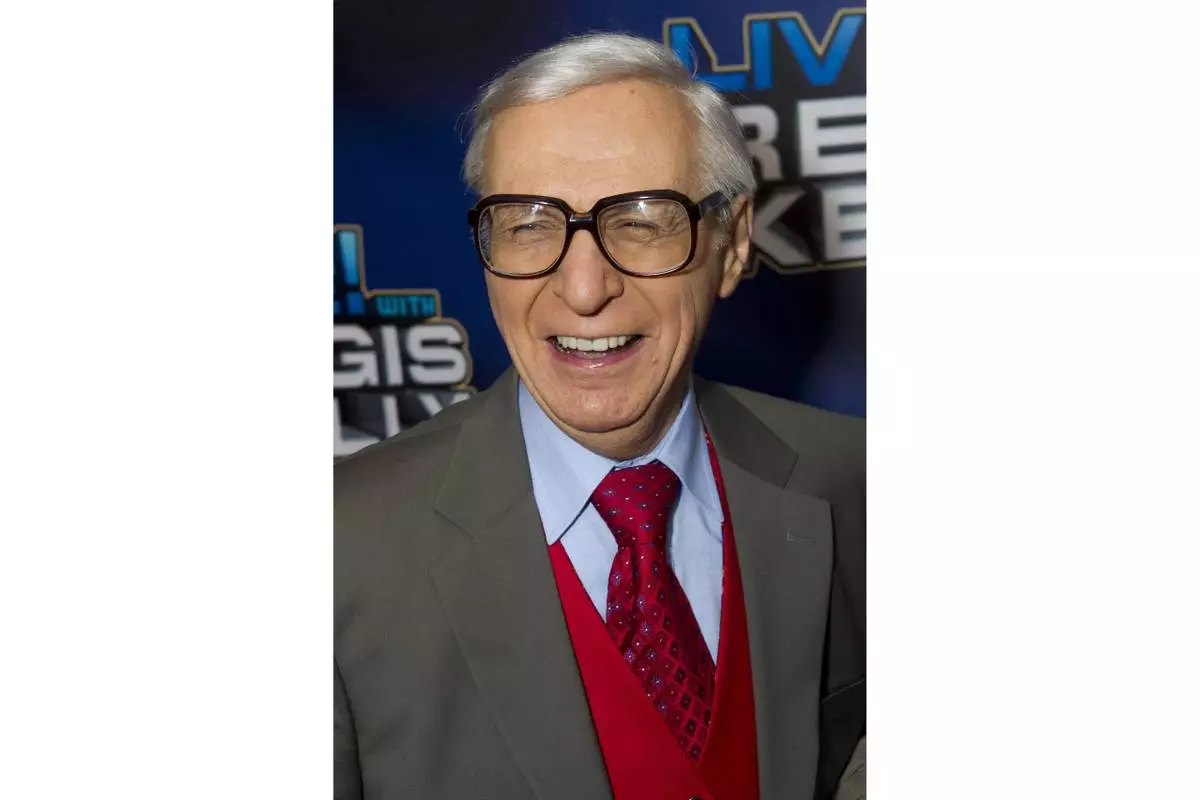
FILE - George Joseph Kresge, better known as "The Amazing Kreskin," appears for the farewell episode for Regis Philbin of "Live! with Regis and Kelly", in New York on Nov. 18, 2011. (AP Photo/Charles Sykes, File)
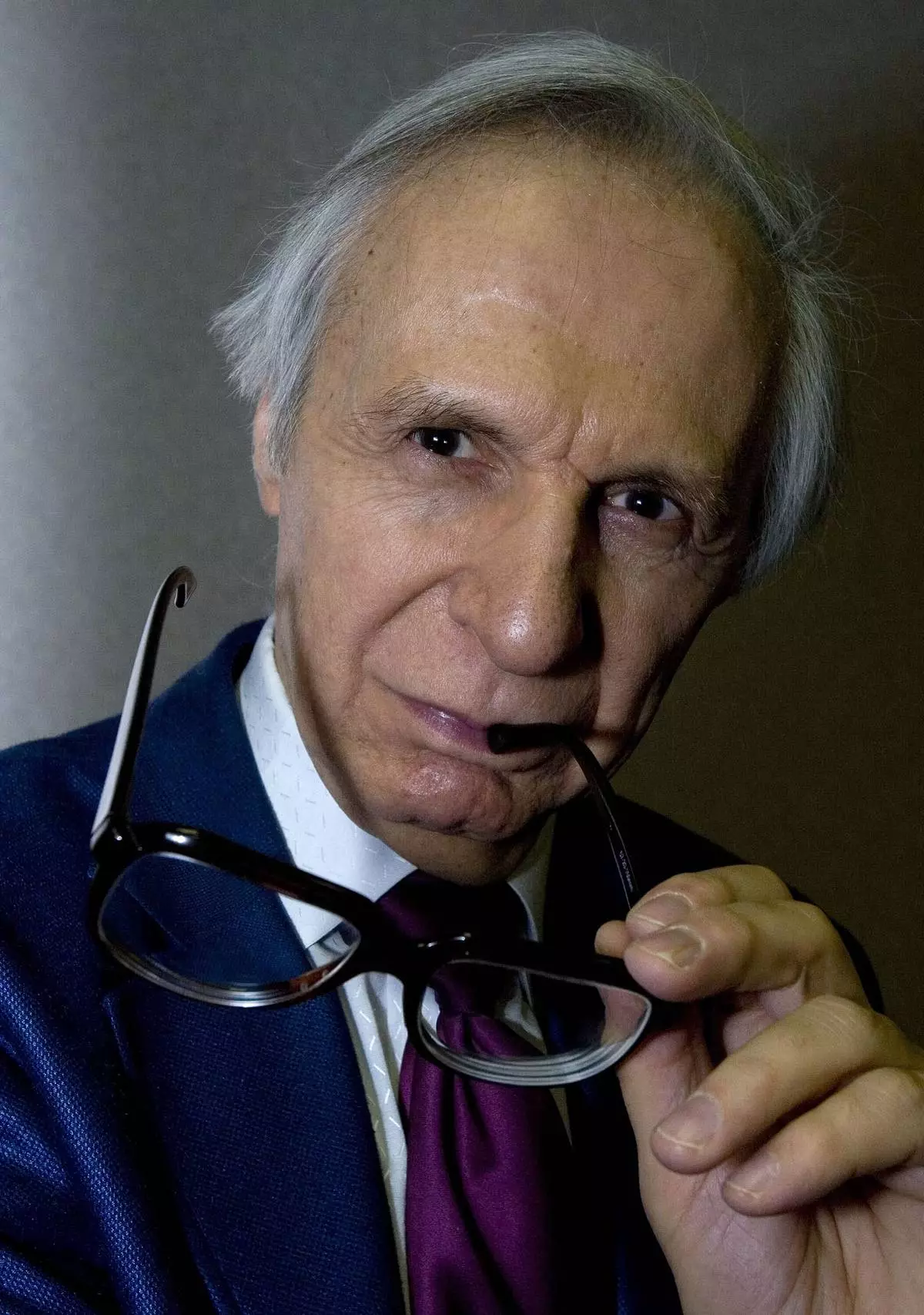
FILE - George Joseph Kresge Jr., better known as "The Amazing Kreskin," poses for a portrait in Toronto on April 24, 2007. (Lars Hagberg/The Canadian Press via AP, File)
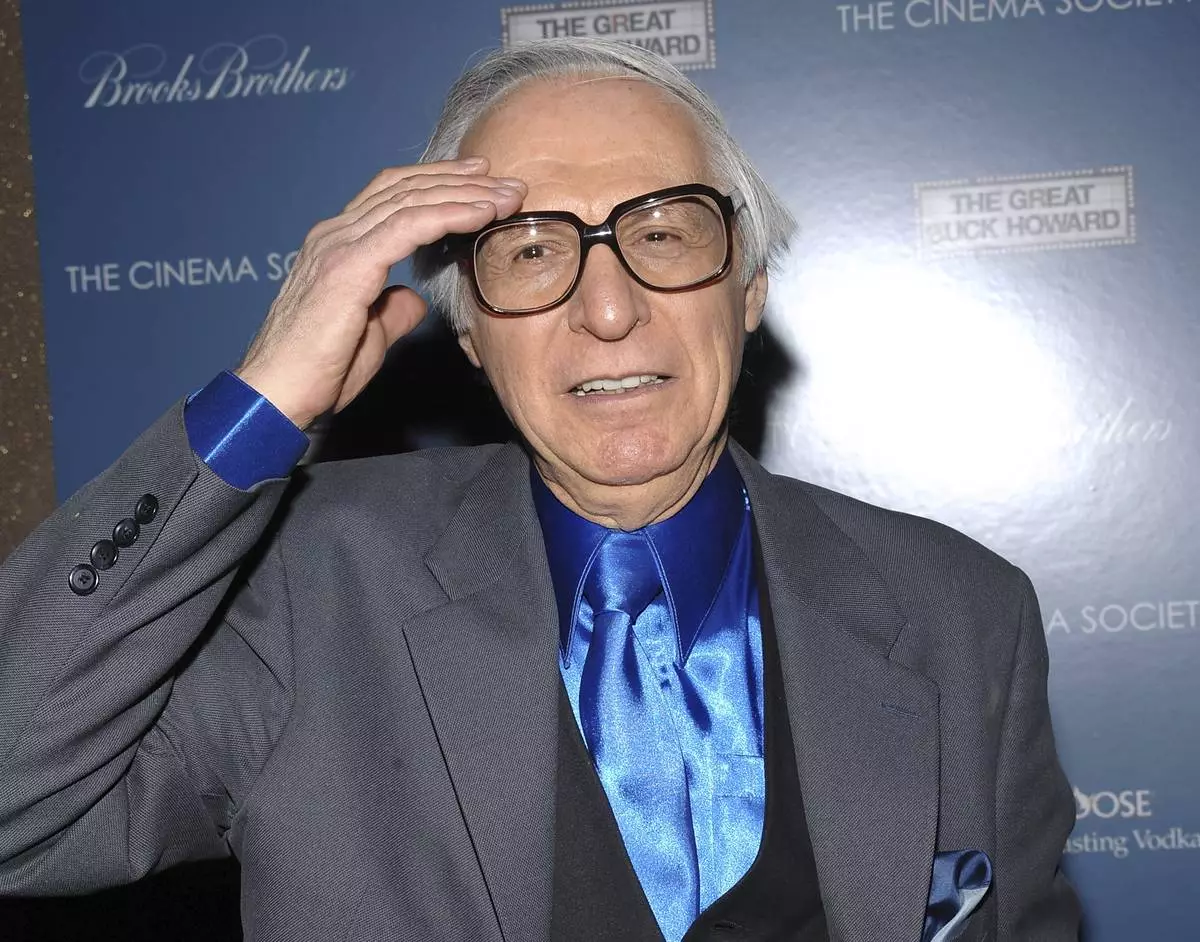
FILE - Mentalist George Joseph Kresge, known as "The Amazing Kreskin," attends a screening of "The Great Buck Howard" in New York on March 10, 2009. (AP Photo/Evan Agostini, File)
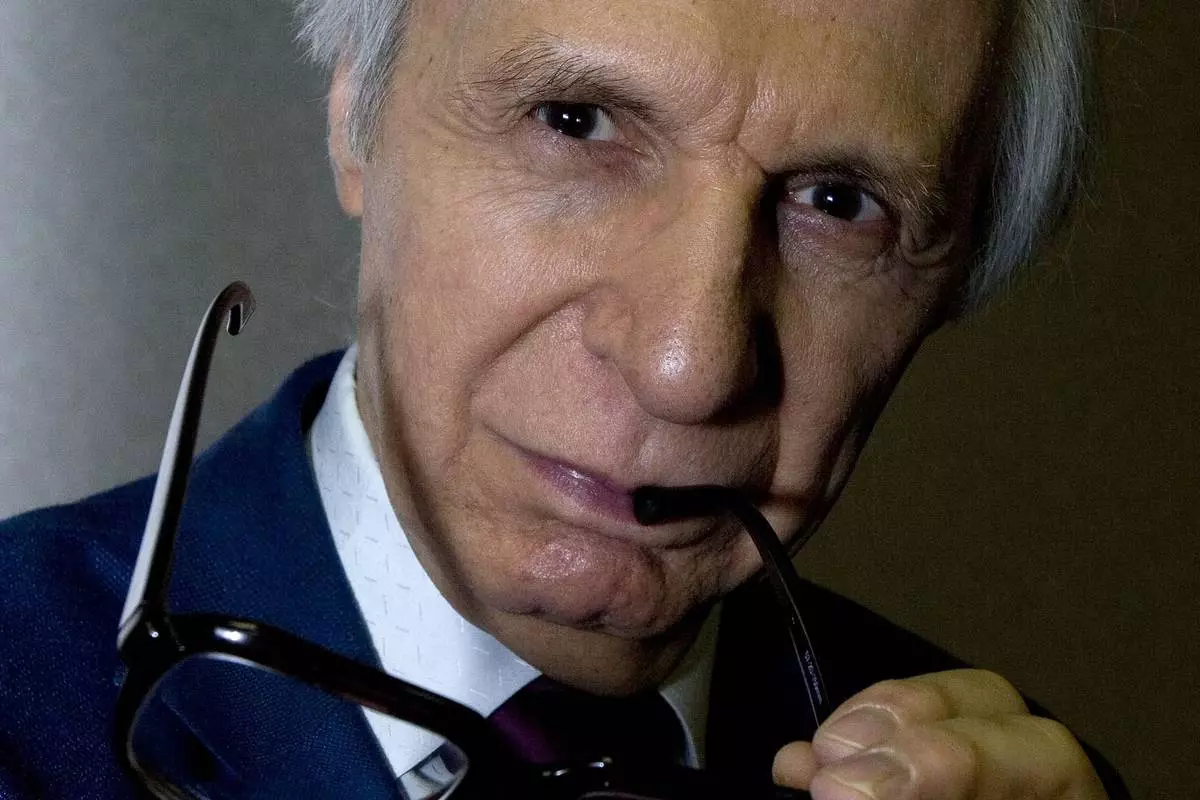
FILE - George Joseph Kresge Jr., better known as "The Amazing Kreskin," poses for a portrait in Toronto on April 24, 2007. (Lars Hagberg/The Canadian Press via AP, File)
The jihadi rebels who toppled Syrian President Bashar Assad say they want to build a unified, inclusive country. But after nearly 14 years of civil war, putting that ideal into practice will not be easy.
For Syria’s Kurdish minority, America’s closest ally in the country, the struggle for a new order is entering a potentially even more challenging phase.
Over the course of Syria’s civil war, Kurdish fighters have fended off an array of armed factions, partnered with the U.S. to rout the Islamic State group and carved out a largely autonomous region in the country’s oil-rich east.
But the gains of the non-Arab Kurds are now at risk. The ascendance of the Sunni Arab rebels who overthrew Assad — with vital help from Turkey, a longtime foe of the Kurds — will make it hard for the Kurds to find a place in the new Syria and could prolong the conflict.
The jihadi rebels who rode into Damascus over the weekend have made peaceful overtures to the Kurds. But the rebels violently drove Kurdish fighters out of the eastern city of Deir al-Zour days after government forces abandoned it.
To the north, a separate opposition faction backed by Turkey that has been battling the Kurds for years seized the town of Manbij. And Turkey carried out airstrikes on a Kurdish convoy it said was carrying heavy weapons looted from government arsenals.
The Kurds have long counted on U.S. aid in the face of such challenges. Around 900 American troops are in eastern Syria, where they partner with Kurdish forces to prevent an Islamic State resurgence. But the future of that mission will be thrown into doubt under president-elect Donald Trump, who has long been skeptical about U.S. involvement in Syria.
Here's a closer look at the predicament the Kurds find themselves in.
The Kurds are among the largest stateless ethnic groups in the world, with some 30 million concentrated in a territory straddling Turkey, Iran, Iraq and Syria. They are a minority in each country and have often suffered persecution, which has fueled armed Kurdish uprisings.
In Syria, they carved out an autonomous enclave early in the civil war, never fully siding with the Assad government or the rebels seeking to topple him.
When the Islamic State group seized a third of the country in 2014, Kurdish fighters — who are secular and include women in their ranks — proved their mettle in early battles against the extremists, earning support from the U.S.-led coalition.
They formed a group known as the Syrian Democratic Forces, which also includes Arab fighters, and drove the Islamic State group out of large areas of Syria with help from U.S.-led airstrikes and American special forces. In 2017, these Kurdish-led forces captured Raqqa, the capital of the extremists' self-styled caliphate.
Turkey has long viewed the SDF as an extension of the decades-old Kurdish insurgency within its own borders. It considers the main Kurdish faction a terrorist group on par with the Islamic State and has said it should have no presence in the new Syria.
In recent years, Turkey has trained and funded fighters known as the Syrian National Army, helping them wrest control of territory from the Kurds in northern Syria along the border with Turkey. These Turkish-backed fighters have portrayed themselves as part of the opposition against Assad, but analysts say they are largely driven by opportunism and hatred of the Kurds.
The Kurds have focused on battling the SNA in recent years. But the new leadership in Damascus, which also has longstanding ties to Turkey, could open another, much longer front.
The main rebel faction is led by Ahmad al-Sharaa, formerly known as Abu Mohammed al-Golani, a former al-Qaida militant who cut ties with the group eight years ago and says he wants to build a new Syria free of dictatorship that will serve all its religious and ethnic communities.
Nawaf Khalil, head of the Germany-based Center for Kurdish Studies, said the early signs were positive. He said the rebels steered clear of two SDF-controlled enclaves of Aleppo when they stormed the city two weeks ago at the start of their rapid advance across the country.
“It is also positive that they did not speak negatively about the Syrian Democratic Forces," he said.
It remains to be seen if those sentiments will endure. After sweeping into Deir al-Zour this week, a fighter from al-Sharaa's group posted a video saying they would soon advance toward Raqqa and other areas of eastern Syria, raising the possibility of further clashes with the Kurds.
The rebels could still seek some kind of agreement with the Kurds to incorporate them into the post-Assad political order, but that would likely require accepting a degree of Kurdish autonomy in the east. It would also risk angering Turkey, which now appears to be the chief power broker in Syria.
The top U.S. military commander for the Middle East, Army Gen. Erik Kurilla, met with SDF forces in Syria on Tuesday, in a sign of the Biden administration's commitment to the alliance post-Assad.
But things could change on Jan. 20.
Trump has provided few details about his Middle East policy, aside from saying he wants to end the region's wars and keep the United States out of them.
In a social media post shortly before Assad was overthrown, Trump wrote that “Syria is a mess, but is not our friend, & THE UNITED STATES SHOULD HAVE NOTHING TO DO WITH IT. THIS IS NOT OUR FIGHT.”
During his previous term, in 2019, Trump abandoned the Kurds ahead of a Turkish incursion, casting it as the fulfillment of a campaign promise to end U.S. involvement in the region's “endless wars.”
The move prompted heavy criticism, including from prominent Republicans who accused him of betraying an ally. Trump backtracked weeks later, approving a wider mission to secure oil fields in the east. The troops remained where they were and the alliance endured.
Associated Press writer Bassem Mroue in Beirut contributed to this report.
Follow the AP's Syria coverage at https://apnews.com/hub/syria
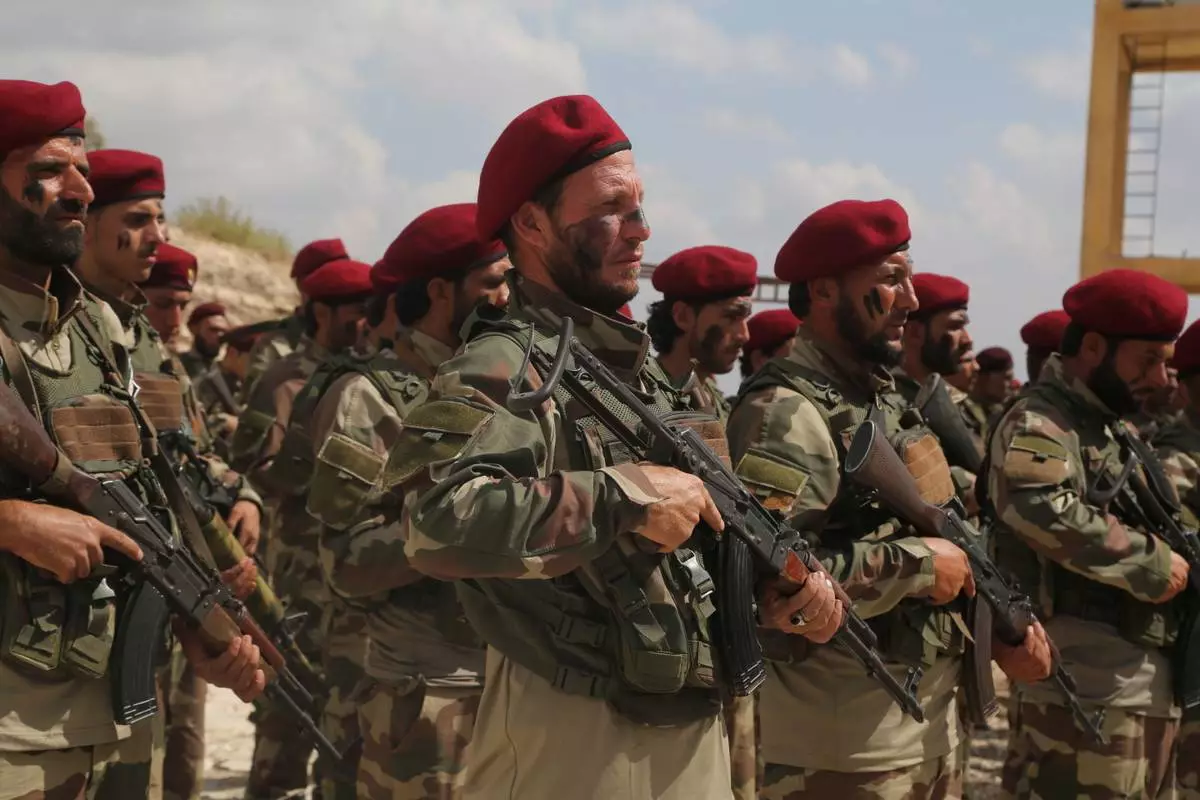
FILE - Turkish-backed Syrian forces stand in formation near the town of Azaz, Syria, on Oct. 7, 2019. (AP Photo, File)
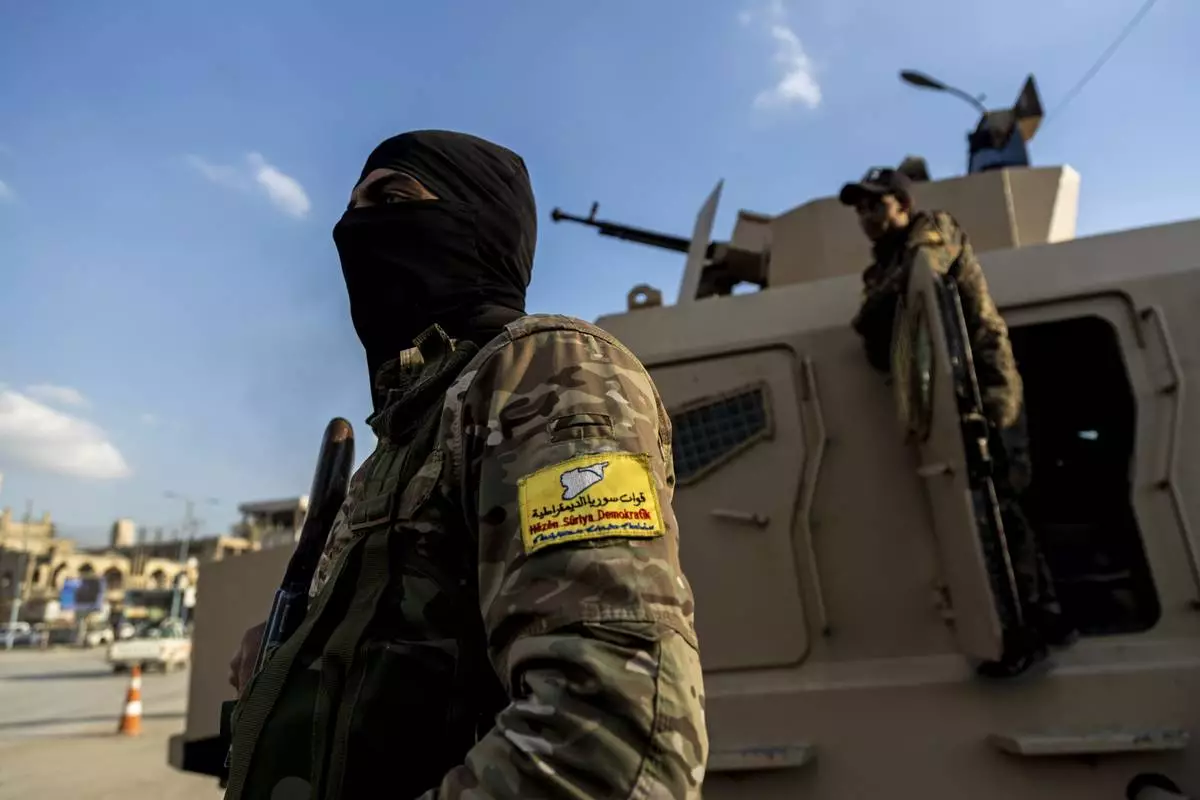
FILE - Kurdish-led fighters backed by the U.S. stand guard in Raqqa, Syria, on Feb. 7, 2022. (AP Photo/Baderkhan Ahmad, File)
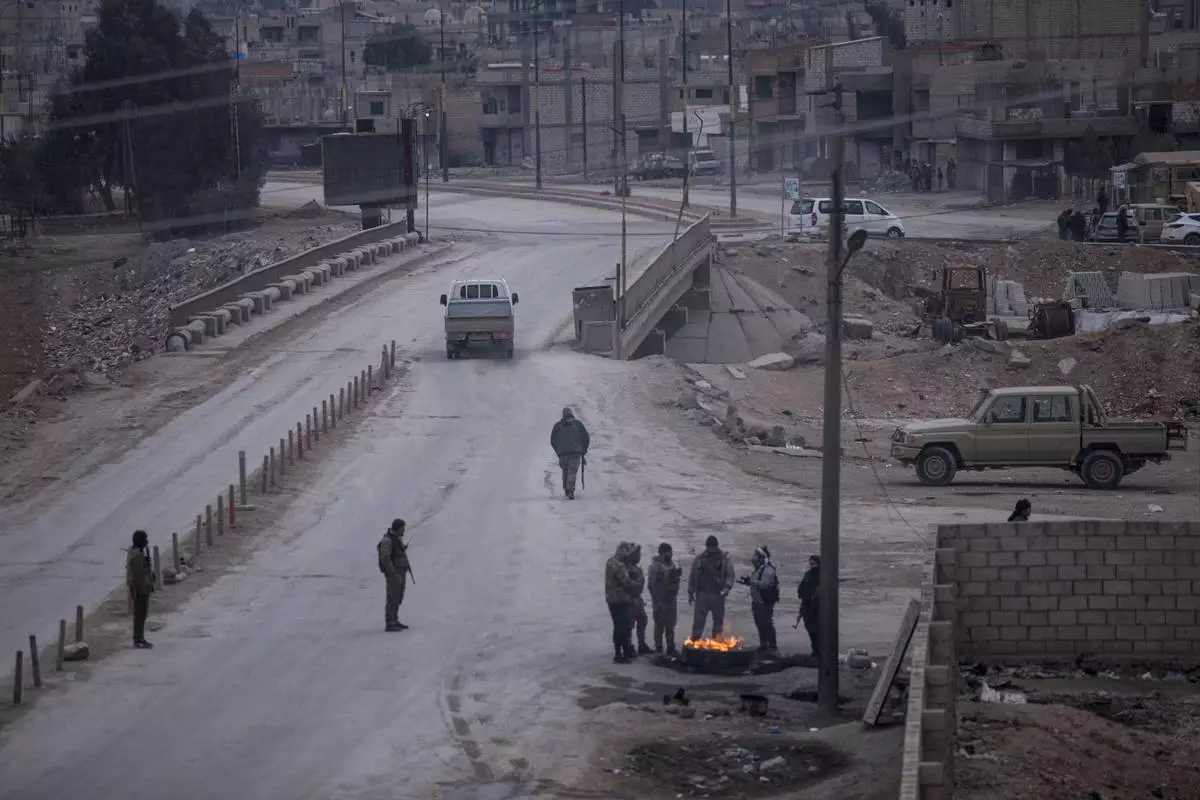
FILE - Kurdish-led fighters backed by the U.S. man a checkpoint in Hassakeh, Syria, on Jan. 24, 2022. (AP Photo/Baderkhan Ahmad, File)
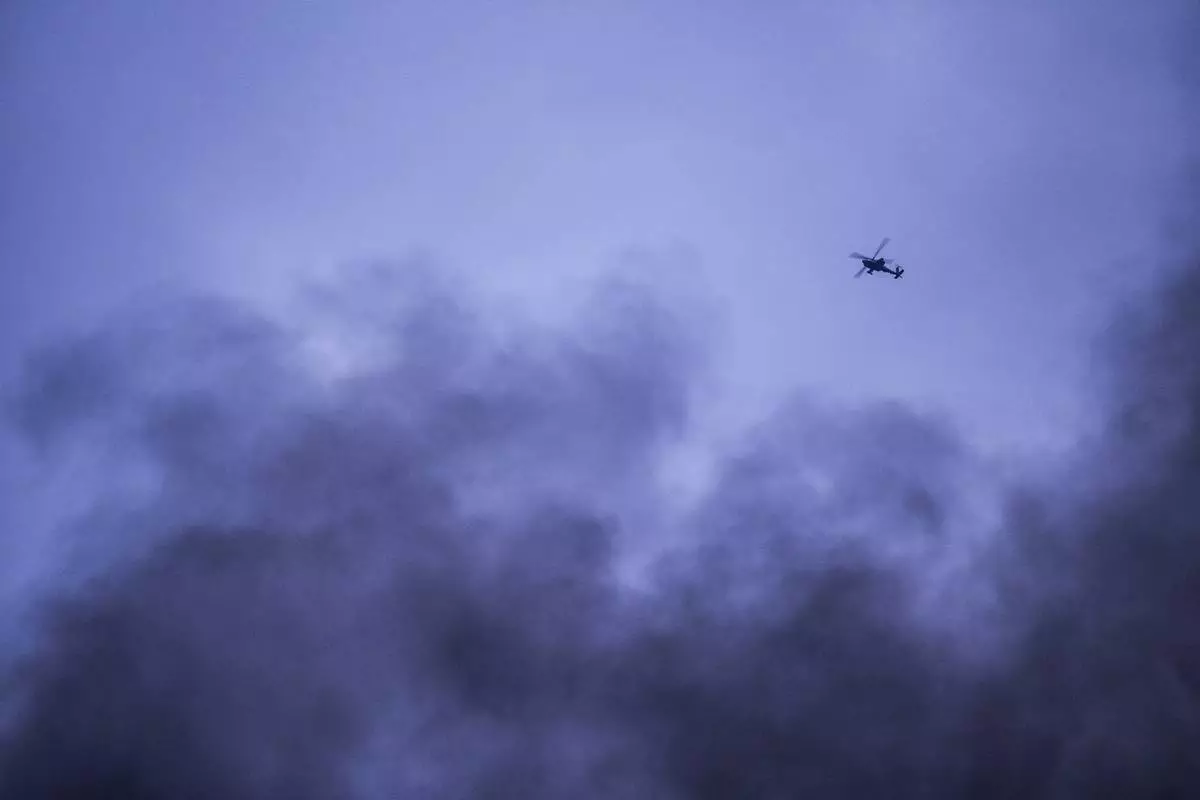
FILE - American attack helicopter flies over Hassakeh, Syria, on Jan. 24, 2022. (AP Photo/Baderkhan Ahmad, File)
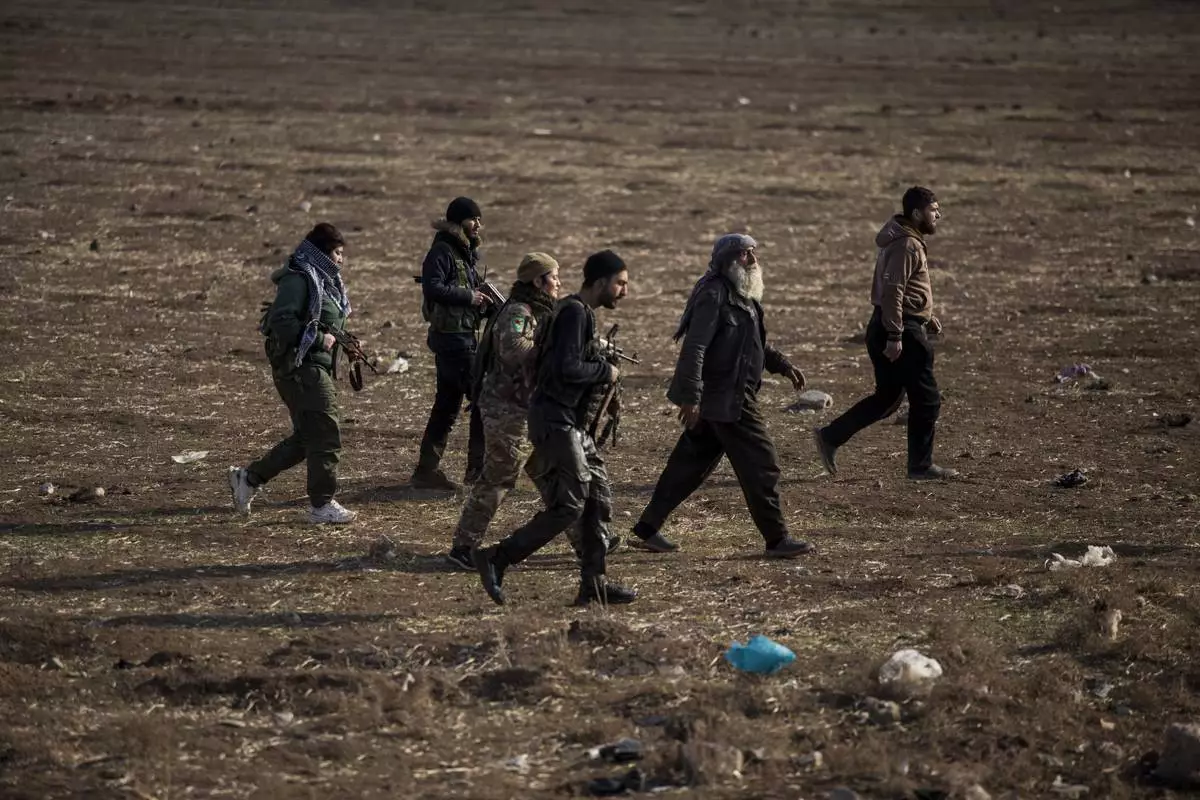
FILE - Kurdish-led fighters backed by the U.S. escort suspected Islamic State militants in Hassakeh, Syria, on Jan. 26, 2022. (AP Photo/Baderkhan Ahmad, File)
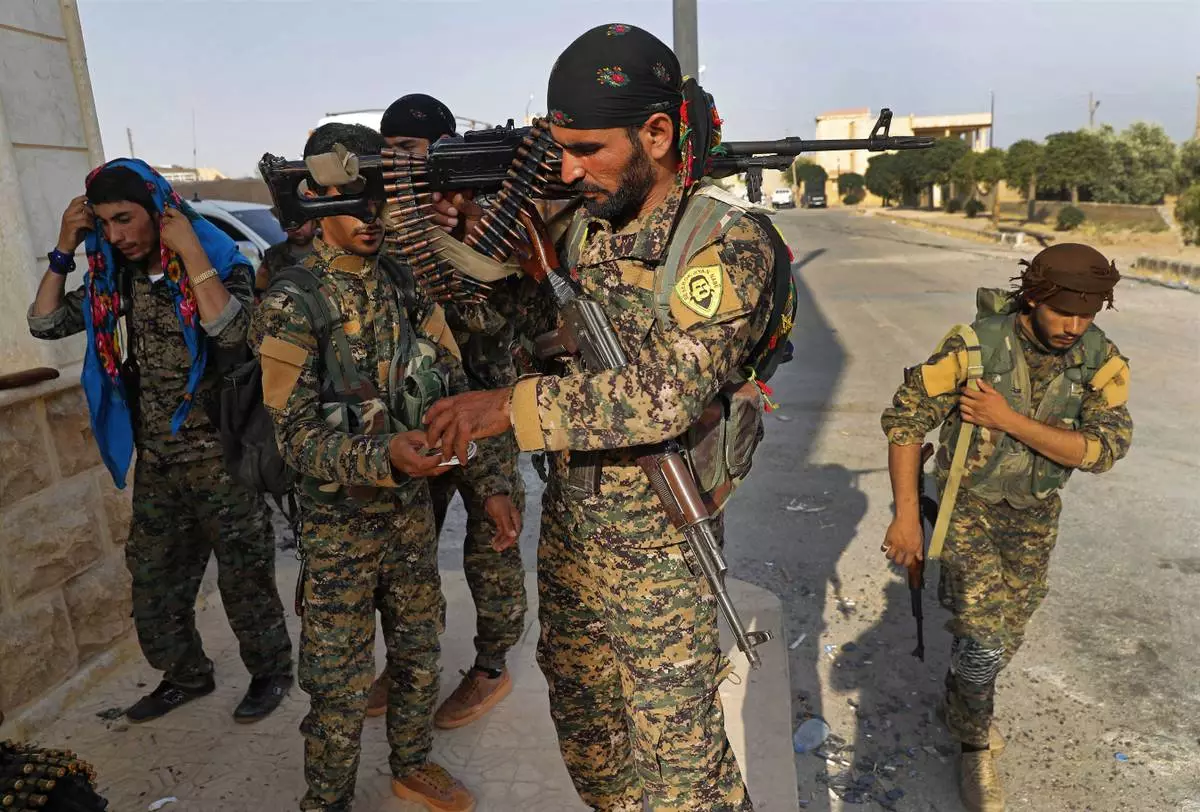
FILE - Kurdish-led fighters backed by the U.S. prepare for battle against Islamic state group militants, in Raqqa, on June 22, 2017. (AP Photo/Hussein Malla, File)






